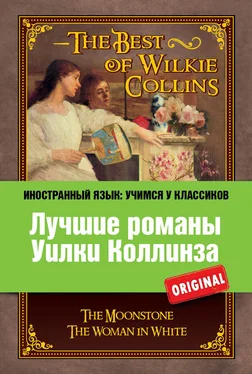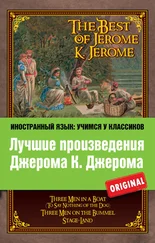“I left yesterday to decide,” she said; “and yesterday HAS decided. It is too late to go back.”
Sir Percival spoke to me this afternoon about what had passed in Laura’s room. He assured me that the unparalleled trust she had placed in him had awakened such an answering conviction of her innocence and integrity in his mind, that he was guiltless of having felt even a moment’s unworthy jealousy, either at the time when he was in her presence, or afterwards when he had withdrawn from it. Deeply as he lamented the unfortunate attachment which had hindered the progress he might otherwise have made in her esteem and regard, he firmly believed that it had remained unacknowledged in the past, and that it would remain, under all changes of circumstance which it was possible to contemplate, unacknowledged in the future. This was his absolute conviction; and the strongest proof he could give of it was the assurance, which he now offered, that he felt no curiosity to know whether the attachment was of recent date or not, or who had been the object of it. His implicit confidence in Miss Fairlie made him satisfied with what she had thought fit to say to him, and he was honestly innocent of the slightest feeling of anxiety to hear more.
He waited after saying those words and looked at me. I was so conscious of my unreasonable prejudice against him – so conscious of an unworthy suspicion that he might be speculating on my impulsively answering the very questions which he had just described himself as resolved not to ask – that I evaded all reference to this part of the subject with something like a feeling of confusion on my own part. At the same time I was resolved not to lose even the smallest opportunity of trying to plead Laura’s cause, and I told him boldly that I regretted his generosity had not carried him one step farther, and induced him to withdraw from the engagement altogether.
Here, again, he disarmed me by not attempting to defend himself. He would merely beg me to remember the difference there was between his allowing Miss Fairlie to give him up, which was a matter of submission only, and his forcing himself to give up Miss Fairlie, which was, in other words, asking him to be the suicide of his own hopes. Her conduct of the day before had so strengthened the unchangeable love and admiration of two long years, that all active contention against those feelings, on his part, was henceforth entirely out of his power. I must think him weak, selfish, unfeeling towards the very woman whom he idolised, and he must bow to my opinion as resignedly as he could – only putting it to me, at the same time, whether her future as a single woman, pining under an unhappily placed attachment which she could never acknowledge, could be said to promise her a much brighter prospect than her future as the wife of a man who worshipped the very ground she walked on? In the last case there was hope from time, however slight it might be – in the first case, on her own showing, there was no hope at all.
I answered him – more because my tongue is a woman’s, and must answer, than because I had anything convincing to say. It was only too plain that the course Laura had adopted the day before had offered him the advantage if he chose to take it – and that he HAD chosen to take it. I felt this at the time, and I feel it just as strongly now, while I write these lines, in my own room. The one hope left is that his motives really spring, as he says they do, from the irresistible strength of his attachment to Laura.
Before I close my diary for to-night I must record that I wrote to-day, in poor Hartright’s interest, to two of my mother’s old friends in London – both men of influence and position. If they can do anything for him, I am quite sure they will. Except Laura, I never was more anxious about any one than I am now about Walter. All that has happened since he left us has only increased my strong regard and sympathy for him. I hope I am doing right in trying to help him to employment abroad – I hope, most earnestly and anxiously, that it will end well.
11th. – Sir Percival had an interview with Mr. Fairlie, and I was sent for to join them.
I found Mr. Fairlie greatly relieved at the prospect of the “family worry” (as he was pleased to describe his niece’s marriage) being settled at last. So far, I did not feel called on to say anything to him about my own opinion, but when he proceeded, in his most aggravatingly languid manner, to suggest that the time for the marriage had better be settled next, in accordance with Sir Percival’s wishes, I enjoyed the satisfaction of assailing Mr. Fairlie’s nerves with as strong a protest against hurrying Laura’s decision as I could put into words. Sir Percival immediately assured me that he felt the force of my objection, and begged me to believe that the proposal had not been made in consequence of any interference on his part. Mr. Fairlie leaned back in his chair, closed his eyes, said we both of us did honour to human nature, and then repeated his suggestion as coolly as if neither Sir Percival nor I had said a word in opposition to it. It ended in my flatly declining to mention the subject to Laura, unless she first approached it of her own accord. I left the room at once after making that declaration. Sir Percival looked seriously embarrassed and distressed, Mr. Fairlie stretched out his lazy legs on his velvet footstool, and said, “Dear Marian! how I envy you your robust nervous system! Don’t bang the door!”
On going to Laura’s room I found that she had asked for me, and that Mrs. Vesey had informed her that I was with Mr. Fairlie. She inquired at once what I had been wanted for, and I told her all that had passed, without attempting to conceal the vexation and annoyance that I really felt. Her answer surprised and distressed me inexpressibly – it was the very last reply that I should have expected her to make.
“My uncle is right,” she said. “I have caused trouble and anxiety enough to you, and to all about me. Let me cause no more, Marian – let Sir Percival decide.”
I remonstrated warmly, but nothing that I could say moved her.
“I am held to my engagement,” she replied; “I have broken with my old life. The evil day will not come the less surely because I put it off. No, Marian! once again my uncle is right. I have caused trouble enough and anxiety enough, and I will cause no more.”
She used to be pliability itself, but she was now inflexibly passive in her resignation – I might almost say in her despair. Dearly as I love her, I should have been less pained if she had been violently agitated – it was so shockingly unlike her natural character to see her as cold and insensible as I saw her now.
12th. – Sir Percival put some questions to me at breakfast about Laura, which left me no choice but to tell him what she had said.
While we were talking she herself came down and joined us. She was just as unnaturally composed in Sir Percival’s presence as she had been in mine. When breakfast was over he had an opportunity of saying a few words to her privately, in a recess of one of the windows. They were not more than two or three minutes together, and on their separating she left the room with Mrs. Vesey, while Sir Percival came to me. He said he had entreated her to favour him by maintaining her privilege of fixing the time for the marriage at her own will and pleasure. In reply she had merely expressed her acknowledgments, and had desired him to mention what his wishes were to Miss Halcombe.
I have no patience to write more. In this instance, as in every other, Sir Percival has carried his point with the utmost possible credit to himself, in spite of everything that I can say or do. His wishes are now, what they were, of course, when he first came here; and Laura having resigned herself to the one inevitable sacrifice of the marriage, remains as coldly hopeless and enduring as ever. In parting with the little occupations and relics [185]that reminded her of Hartright, she seems to have parted with all her tenderness and all her impressibility. It is only three o’clock in the afternoon while I write these lines, and Sir Percival has left us already, in the happy hurry of a bridegroom, to prepare for the bride’s reception at his house in Hampshire. Unless some extraordinary event happens to prevent it they will be married exactly at the time when he wished to be married – before the end of the year. My very fingers burn as I write it!
Читать дальше
Конец ознакомительного отрывка
Купить книгу












